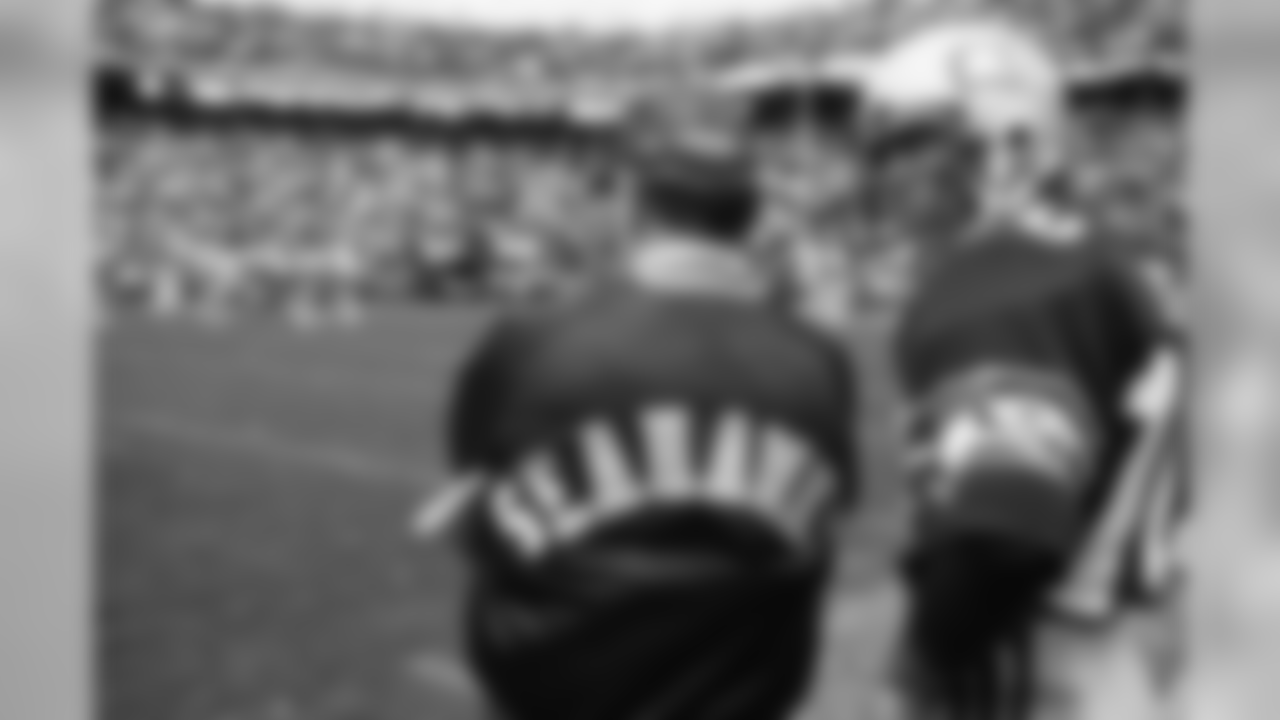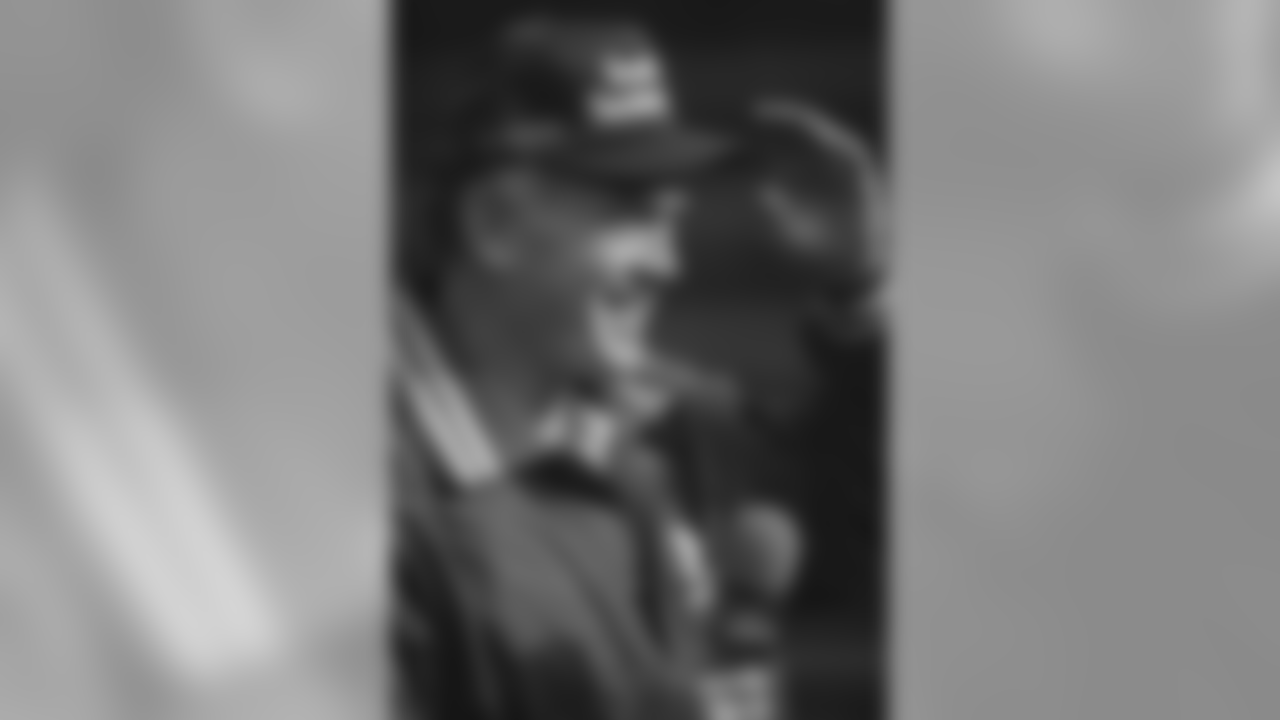Pete Carroll had what he called an early "brush with greatness" not long after graduating from the University of the Pacific in 1973. The Los Angeles Rams, under recently-hired head coach Chuck Knox, were hosting a tryout at the Los Angeles Memorial Coliseum, and Carroll, an All-Conference safety for the Tigers, received an invite.
"After graduating, the Rams were holding a big workout down at the Coliseum, kind of an all-comers deal," Carroll said Tuesday. "My coaches had sent them film of me playing so they'd know who was coming, and the GM kind of liked me and said, 'Well when you get to the workout, come find me and I want to introduce you to Coach Knox.' There's hundreds of guys there at this workout, so I felt pretty special—I was one of the only guys who gets to meet coach Knox. And he was a tough guy back in the day, but he was a real nice to me."
Nice or not, Knox wasn't impressed enough with Carroll's workout to offer a roster spot with the Rams.
"I went through the workout, and I never heard from him again," Carroll said. "They timed me in the 40, they did this and did that, and I never heard from them again. That was my shot with the Rams. That was my brush with greatness."
In the years that followed, Knox would go on to become one of the winningest coaches in NFL history as the head coach of the Rams, Bills and Seahawks, while Carroll would launch his own very successful coaching career not long after Knox's Rams helped end his dreams of a playing career. Carroll never played for Knox or coached under him, but having been a longtime NFL assistant and head coach, and working now for the organization Knox helped bring to prominence in the 1980s, Carroll has a strong appreciation for what Knox, who passed away Saturday at the age of 86, meant to the Seahawks and the entire region.
"He was an extraordinarily iconic coach," Carroll said. "He was such a hard-nosed, tough guy. The running game he stood for and how he was all about that was really true; the O-line guy background, the grind part of it, the toughness was what Coach Knox was all about, and his teams played like it. Wherever he was, they all played just like his mentality and his approach, and I admired the heck out of him.
"He gave probably the first real surge of excellence around here and showed that you can play championship ball here and you can have the expectations that we have now today still. He set things in motion in a real classy fashion. He was a real ball coach and he brought that to the area and the fans and this franchise."
And like Carroll, nearly everyone who crossed paths with Knox during his memorable career had a lot of fond memories about the coach who led the Seahawks to their first playoff berth and who is currently the only coach in the Seahawks Ring of Honor.
Steve Largent, Seahawks receiver 1976-1989, member of Seahawks Ring of Honor and Pro Football Hall of Fame
"He was successful everywhere he went for a long, long period of time. I really enjoyed playing for him. He was a guy who just commanded respect, and you gave it to him. But at the same time, he really was a players' coach. He was a guy who appreciated the guys who played for him and he really went out of his way to accommodate players, whether that was through certain plays he would call or through the practice schedule or whatever. He was a real players' coach, and you can't say that about every head coach in the National Football League, but you could definitely say it about Chuck Knox."
Largent was with the Seahawks from the beginning, and saw Knox help lead the team to a new level of success after taking over in 1983.
"We had started the franchise on pretty good footing, but then sort of stumbled there in the early 80s, and that's when Chuck came in. he righted the ship, so to speak. He had a plan and he executed it to perfection. We went to the playoffs the first year he was in Seattle, and that was the first time we made the playoffs, so that was really substantial. And he always had high goals. He set high standards for the team every year—if we were 8-8, that wasn't a good year at all. He always commanded the best from the players who played for him."
Largent, like nearly everyone else who crossed paths with Knox, enjoyed his coach's famous aphorisms, which came to be known as Knoxisms.
"I have an entire library of Knoxisms, because I just got the biggest kick out of him talking about growing up in Pennsylvania, "The hard man travels the hard road." It was just him. If somebody else had tried to do it the way Chuck did, it wouldn't have worked, but with Chuck it was authentic and real. Everyone got a kick out of Chuck, but he didn't do it just to be funny, he had a point and he always was able to make his point in a very profound way."
Jacob Green, Seahawks defensive end 1980-1992, member of Seahawks Ring of Honor
"As a football coach, he meant an awful lot to me personally. The way he went about his business, the way he treated his players, he just treated you right. One of his big deals was always treating someone like you want to be treated. He was also that coach who put the Seahawks on the map as far as really turning the program around and making us feared instead of being a team that everyone wanted to come play. I feel really fortunate that I had a chance to play under him.
"He was just a guy that everybody cared about. Guys on our football team loved him. He always put the players first. He was just a really good person."
Like Largent, Green began his Seahawks career before Knox arrived, and was impressed with the way a new coach made an immediate impact, leading the team to its first playoff berth in 1983.
"He put us in the position to where when people came out to play the Seahawks, you knew you had to have your best game. We went from being not even contending, then Chuck came in and immediately we make a run, get to the AFC championship game, and it was on from then on. He brought stability to the Seahawks, we were one of the teams to beat.
One of Green's fondest memories of Knox was when, after a big road victory, Seattle's coach had the team bus make a stop on the way to the airport.
"I remember Chuck telling them to pull the bus over so we could get beers. We celebrated all the way home. He was a players' coach. He knew how to get the best out of players. I never really heard anyone say a negative thing about Chuck Knox.
"We had some great times, man. As a player, you wanted to go to work. You didn't hate going to work. You loved going to work. I couldn't wait to get to practice and go to work and see all the guys and play as a team. That's what he brought. He brought the whole city together."
Paul Moyer, Seahawks safety 1983-1989; Seahawks defensive backs coach 1990-1994
"To a player, he was an intimidating man. He commanded respect. When he walked into a room, he just had that presence about him… He was definitely a father figure to me. You never wanted to disappoint Chuck. I remember intercepting a pass in a game, and I remember watching all the coaches and players going nuts—because it was at the end of a big game to kind of win the game—and I remember looking at Chuck to see if he was excited. He doesn't get excited often, so he was still pretty stoic, and he said after the game, 'Hey, that couldn't have happened at a better time.' But he was just a guy whenever you walked on the field or into a meeting, you didn't want to screw up. You didn't want to let him down. That's what I remember about him the most. He was a great coach; he gave you the sense that you were always going to win. We were prepared and we were going to take away what they did best, and if we did our jobs as playing, we knew we had a chance to win. That's a good feeling as a player.
"He wasn't your friend, but he knew how to relate to you. He spoke to you when you needed to be spoken to, he'd kick you in the butt if that's what you needed, and he'd pat you on the back if that's what you needed."
When neck injuries cut Moyer's career short, it was Knox who suggested a career in coaching.
"I was getting really bad stingers, I had a couple of herniated discs in my neck, it was my seventh year, and he came up to me—there were four or five games left in the season—and he said, 'Hey, our defensive coaches like you, they'd like you to join the staff. Why don't you start coming to meetings, travel with us, go up in the press box the last four or five games, see if it's something you want to do.' That's pretty rare."
Both Moyer and linebacker Dave Wyman said their former coach shared one trait with one of the world's most famous pieces of art.
"We always used to call him the Mona Lisa, because wherever you were, you thought he was staring at you. It didn't matter where he was on the field either. He would wear his hat down low, and I swear it didn't matter where you were, if you were stretching in line, grabbing a water, you'd always look to see, where's Chuck? And I swear he was always looking at you. And in meetings, if he was scolding the team, he'd never call guys out by name, but he'd reference it, and every time, Dave and I would both go, 'He's talking about me.' 'No, he's talking about me.' He just had a very thoughtful way of motivating people, and people just didn't want to let the guy down."
Dave Wyman, Seahawks linebacker 1987-1992
"He meant a lot to me. I didn't think a coach in the pros would mean that much to me, because you didn't necessarily have a personal relationship with them, because it was all business. But Chuck was all business, and I came to appreciate that so much. People always say that pros want to be told the truth, and that was Chuck.
"There were a lot of moments where, at the time, I didn't like it, but looking back on it I appreciate it. He had a conversation with me when my play was slumping one time, it was the night before a game, he said, 'Look, you need to change the way you're playing and play better or else you're going to be standing next to me.' It doesn't get more direct that that, and it was message delivered, and it helped me. It was one of those things at the time that you don't like, but I needed to hear it. That kind of coaching helped me become a better player. When I retired—I had four coaches, Tom Flores, who won a Super Bowl, I had Mike Shanahan, who won a Super Bowl, and Wade Phillips—and I always say the best head coach I had was Chuck Knox. Having him early on really helped me, because I had him my rookie year through 1991, so five years. I wouldn't trade that in for anything, because he taught players not only how to become professionals, but also how to become men."
While Knox was known as a no-nonsense, hard-nosed coach, he sometimes showed a lighter side.
"He could be funny sometimes. One of the funniest things was when he would imitate John Elway—Chuck would get pissed off when people would jump offside—he'd call him John Wayne, and he'd get up there and do the, 'Hut, hut, hut, hut, hut," screaming in front of everybody. He was a pretty entertaining guy, but for the most part, he was one of those guys who just commanded respect. It wasn't like he was demanding it, it was just that you just knew you were supposed to respect Chuck."
Steve Moore, assistant coach under Knox with Rams, Bills and Seahawks
"It was a different era than you're seeing now, and it was kind of that stage where people were just moving from the Chuck Noll type, the really hard, aggressive coaches to more of the Tom Landry, Bill Walsh type coaches. And Chuck was a mix of both of them. He was one of those old, throwback tough, tough, tough coaches, but he had a side to him too that allowed him to be sensitive to know when to back off, and when not to, quite frankly. He was a master at that.
"He was super, super smart and super, super sensitive, but he had just come through that coaching era that was so influenced by Paul Bryant, so everything was tilted that direction. And even with that tilt in that direction, he was sensitive enough and smart enough to lead a team in a more elegant way. He was beautiful in that."
Reggie McKenzie, Seahawks guard 1983-1984, also played for Knox in Buffalo from 1978-1982
"He came along at a time where a lot of owners and coaches thought that players should be beholden to the team and the owner, and Chuck was of the opinion that players win, coaches ain't never won (expletive). Therefore, he would try to go out and get the best players, and he was known as a players' coach, because he understood the axiom that players win, and coaches ain't never won (expletive). So be it in L.A. or Buffalo or Seattle, he always took some guys with him who understood his philosophy and his attitude towards the game."
McKenzie was nearing the end of his career when Knox went to Seattle, but a call from Knox convinced him to finish his career with the Seahawks.
"He said to me, 'Hey, man, you're a street fighter, and you know that's what I'm looking for. I'm going to Seattle, and I've got to find me some street fighters.'
"If I could talk to him today, I would say to him, and he'd look at me with those steely blues, and I'd say to him, 'Hey man, you had a great run.' Man did he have a great run."
Curt Warner, Seahawks running back 1983-1989
"The school of hard Knox, that's exactly what it was. Chuck had a way of communicating that was motivational. Obviously he was always prepared, everyone knows about the Knoxisms, but it was a very effective way of getting his message across to us. It was just one of those times, especially in '83 when I first got out there, that was probably what was needed for the organization.
"You know winning when you see it, you know guys who are prepared to take that next step, and the Seahawks had a lot of talent, and it was just a matter of bringing in some pieces, getting things turned around, and having the right coach. Chuck was the right guy for that job; I don't think anyone else could have done it as well as he did."
Gary Wright, Seahawks Director of Public Relations and later Vice President of PR during Knox era
"He's one of my all-time favorites. He just brought so much to the Seahawks. The culture and everything else he brought—he brought accountability, maybe more than ever. And it was accountability for everybody, not just players and coaches, but everybody in the office. Everybody's step was a little bit quicker and their attention to detail was better, because that's what he demanded, and everybody responded. They saw where he was going to take the team and they understood that they played a part in that.
"Just before his first press conference, he held a staff meeting. It was the entire staff, and it was to introduce him to everybody, but it was also a way for him to introduce himself and his philosophy to them. I can vividly recall that he talked about how everybody in that room had something to do with the team winning or losing, being successful or not being successful. That not only fired everybody up, but it also placed the accountability on everyone's shoulders. And they felt like they were part of it, part of the organization and part of the team, and had something to do with winning or losing."
One of Wright's early interactions with Knox provided an example of how detail-oriented the head coach was, and how he expected the same from the rest of the organization.
"He would do things for effect. For instance, I was the advance man for the team, which meant you had to make sure everything was set for the team's arrival at the airport, and the hotel was set, all of those logistics. So before the first road game, he says to me, 'Now, the PR guy with the Rams one time didn't check the blinds in my hotel room, and I had to spend that night sleeping in the bath tub so I could get some rest.' I'm thinking to myself, there's no way that happened, but what he is saying is that you better check every single little detail."
Take a look back at some of the best photos of Seahawks Ring of Honor member Chuck Knox, who coached the club for nine seasons (1983-91). Knox passed away at the age of 86.


Seattle Seahawks head coach Chuck Knox during the Seahawks 17-0 loss to the Chicago Bears on September 9, 1990 at Soldier Field in Chicago, Illinois. (AP Photo/NFL Photos)

Seattle Seahawks head coach Chuck Knox yells from the sideline during an NFL game against the San Diego Chargers in San Diego, Calif., Dec. 14, 1986. The Seahawks defeated the Chargers 34-24. (AP Photo/Damian Strohmeyer)

Seattle Seahawks head coach Chuck Knox celebrates on the shoulders of his players after in a 27 - 20 win over the Miami Dolphins in the AFC Divisional Playoffs game on Dec. 31, 1983 at Orange Bowl in Miami,. (Al Messerschmidt via AP)
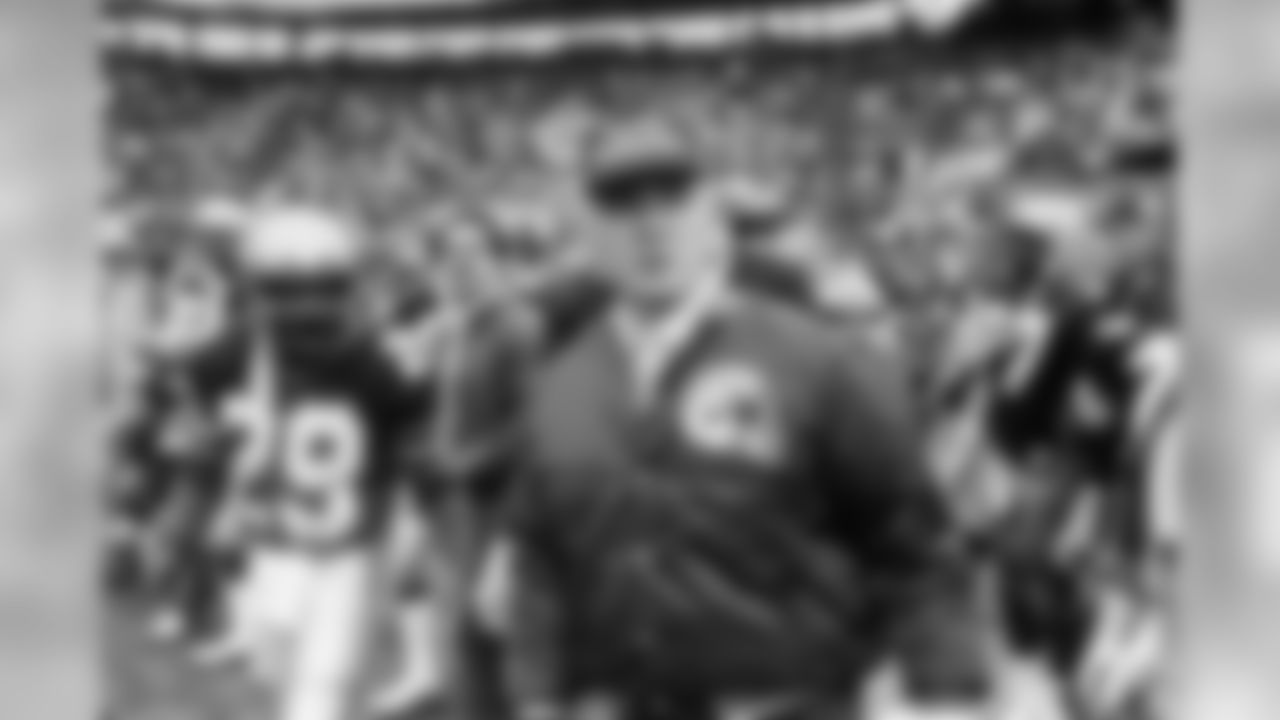
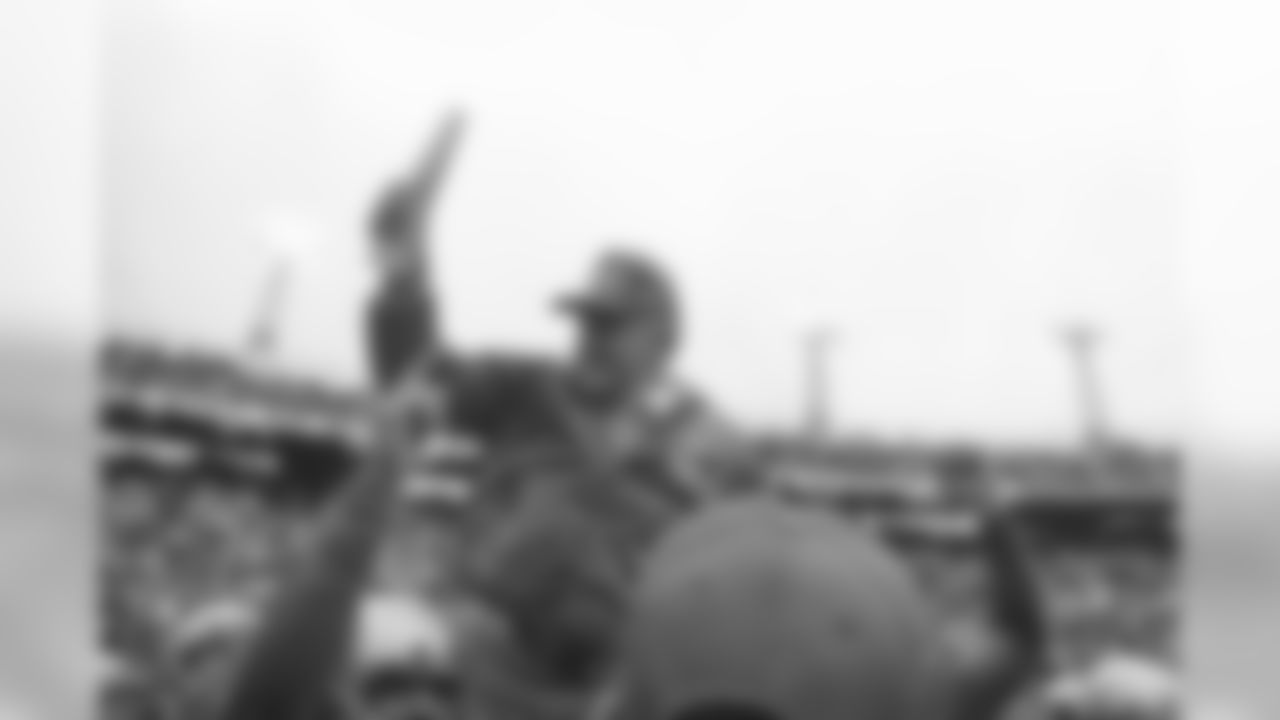
Seattle Seahawks coach Chuck Knox, is obviously happy as he is carried from the field after his Seahawks defeated the Miami Dolphins in the AFC-Semi-Finals at Miami on Saturday, Dec. 31, 1983 with a score of 27-20.(AP Photo)
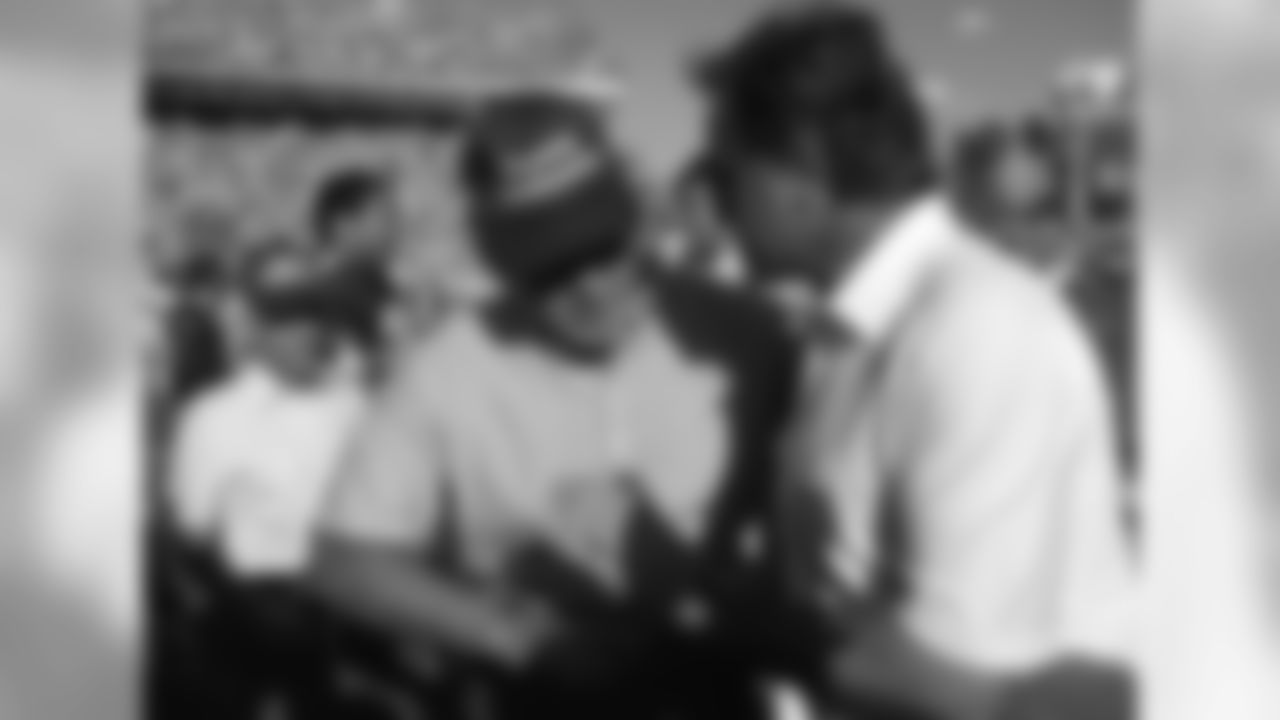

Seattle Seahawks head coach Chuck Knox in June 1991. (AP Photo/NFL Photos)
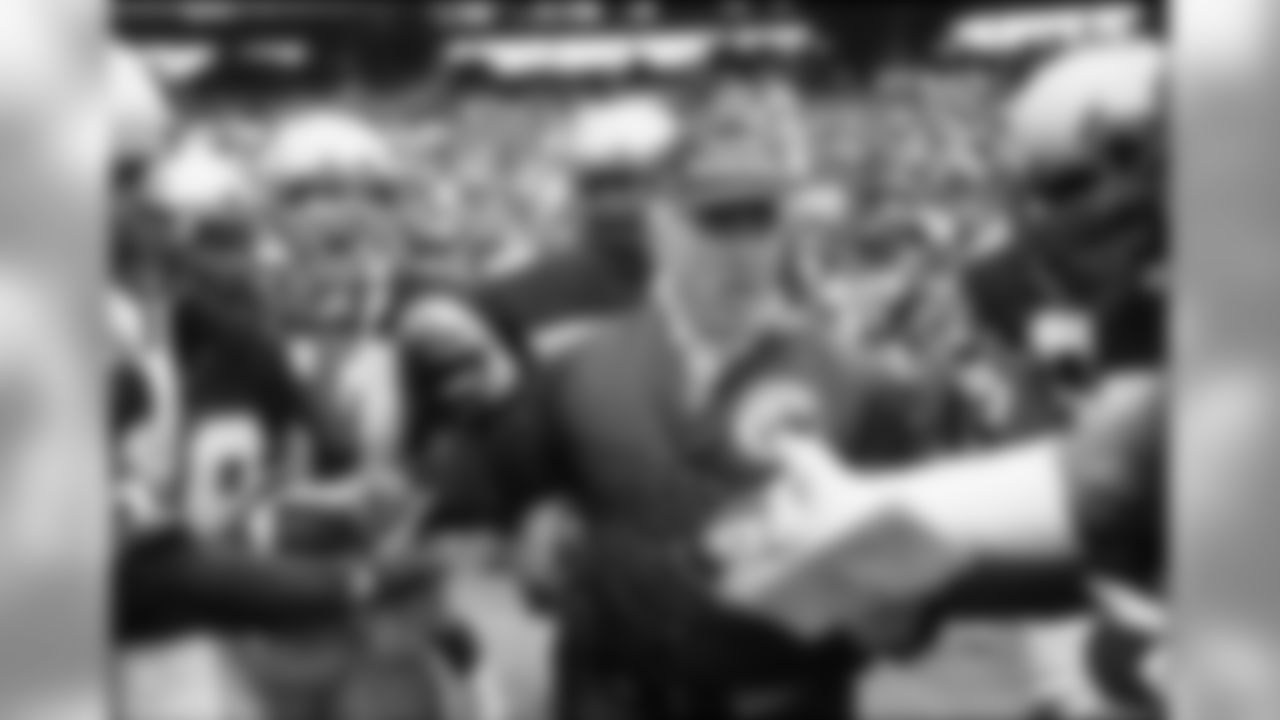

Seattle Seahawks coach Chuck Knox watches warmups before play against the Miami Dolphins in 1983. (Al Messerschmidt via AP)

Seattle Seahawks coach Chuck Knox watches play in 1983. (Al Messerschmidt via AP)

Seattle Seahawks head coach Chuck Knox during a game in 1987. (AP Photo/NFL Photos)

Seattle Seahawks head coach Chuck Knox during a game in 1987. (AP Photo/NFL Photos)

Seattle Seahawks Chuck Knox (Head Coach) during a game from his 1988 season with the Seattle Seahawks. Chuck Knox was a head coach for 22 years with 3 different teams.(David Durochik via AP)

Seattle Seahawks head coach Chuck Knox during a game in 1988. (AP Photo/NFL Photos)

Seattle Seahawks head coach Chuck Knox during a game in 1986. (AP Photo/NFL Photos)

Seattle Seahawks head coach Chuck Knox gives instructions from the sideline during the Seahawks 16-10 victory over the Cleveland Browns on October 9, 1988 at Cleveland Municipal Stadium in Cleveland, Ohio. (AP Photo/NFL Photos)

Seattle Seahawks head coach Chuck Knox in June 1991. (AP Photo/NFL Photos)

Seattle Seahawks head coach Chuck Knox hears words of encouragement from Bears head coach Mike Ditka following the Seahawks 17-0 loss to the Chicago Bears on September 9, 1990 at Soldier Field in Chicago, Illinois. (AP Photo/NFL Photos)

Head coach Chuck Knox of the Seattle Seahawks. Chuck Knox - Head Coach - Seattle Seahawks - File Photos (AP Photo/NFL Photos)

Seattle Seahawks head coach Chuck Knox during a game in 1990. (AP Photo/NFL Photos)

Former Seattle Seahawks head coach Chuck Knox looks at a portrait of himself as coach during the ceremony where he is inducted into the Seahawks Ring of Honor during halftime of the Seahawks game against the Arizona Cardinals in Seattle, Sunday, Sept. 25, 2005. He coached the Seahawks from 1983 to 1991. (AP Photo/John Froschauer)


Seattle Seahawks Chuck Knox (Head Coach) during a game from his 1988 season with the Seattle Seahawks. Chuck Knox was a head coach for 22 years with 3 different teams.(David Durochik via AP)

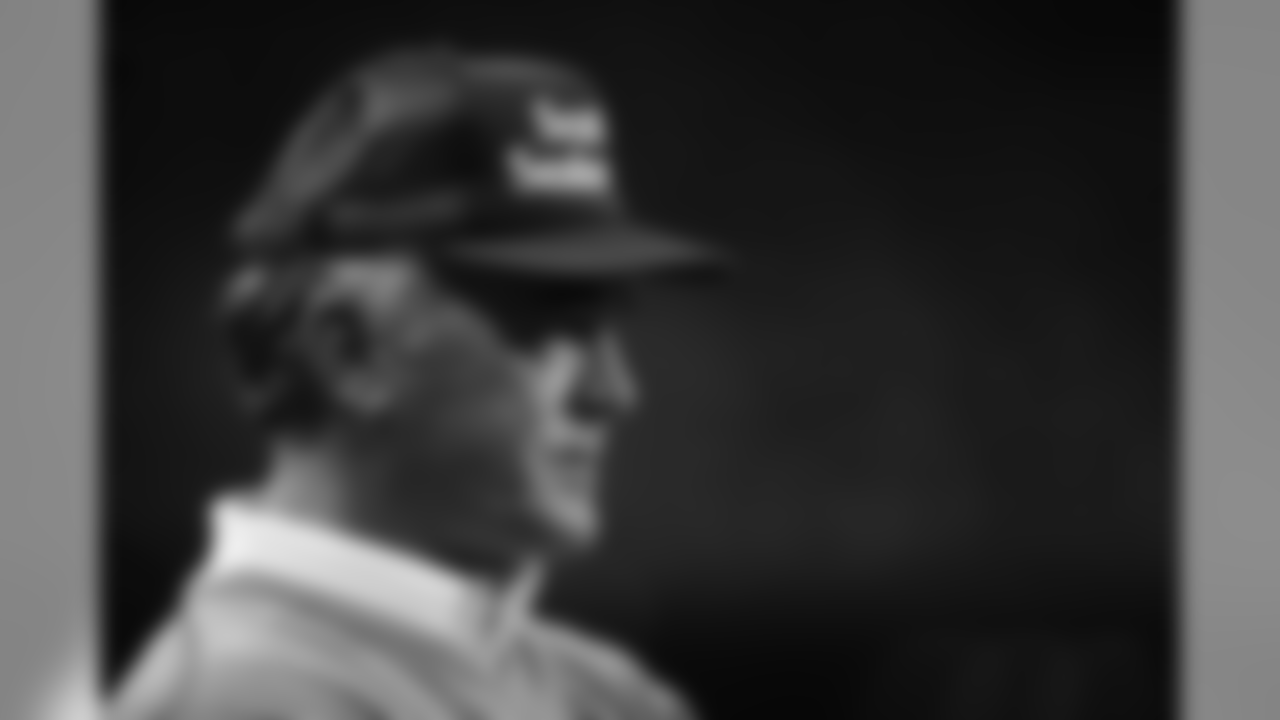

Seattle Seahawks head coach Chuck Knox in June 1991. (AP Photo/NFL Photos)

